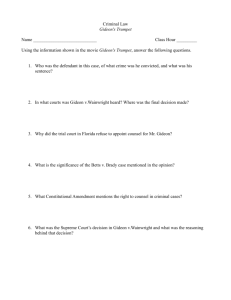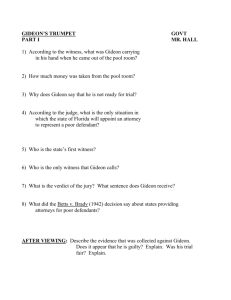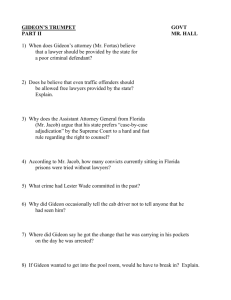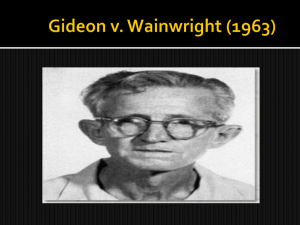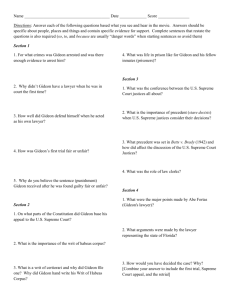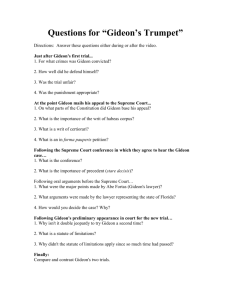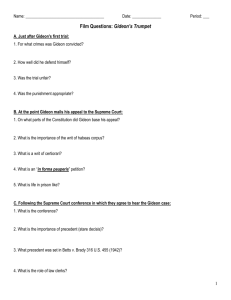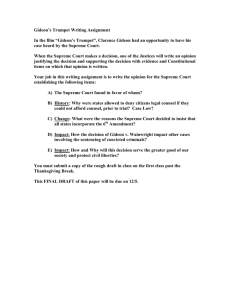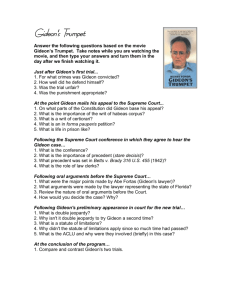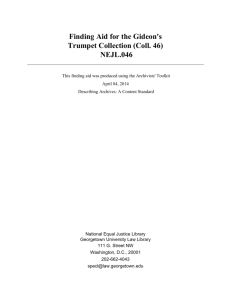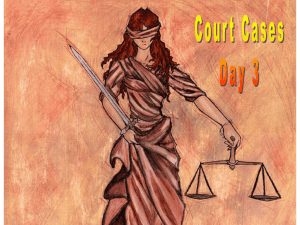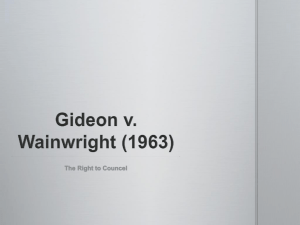Gideon v. Wainwright
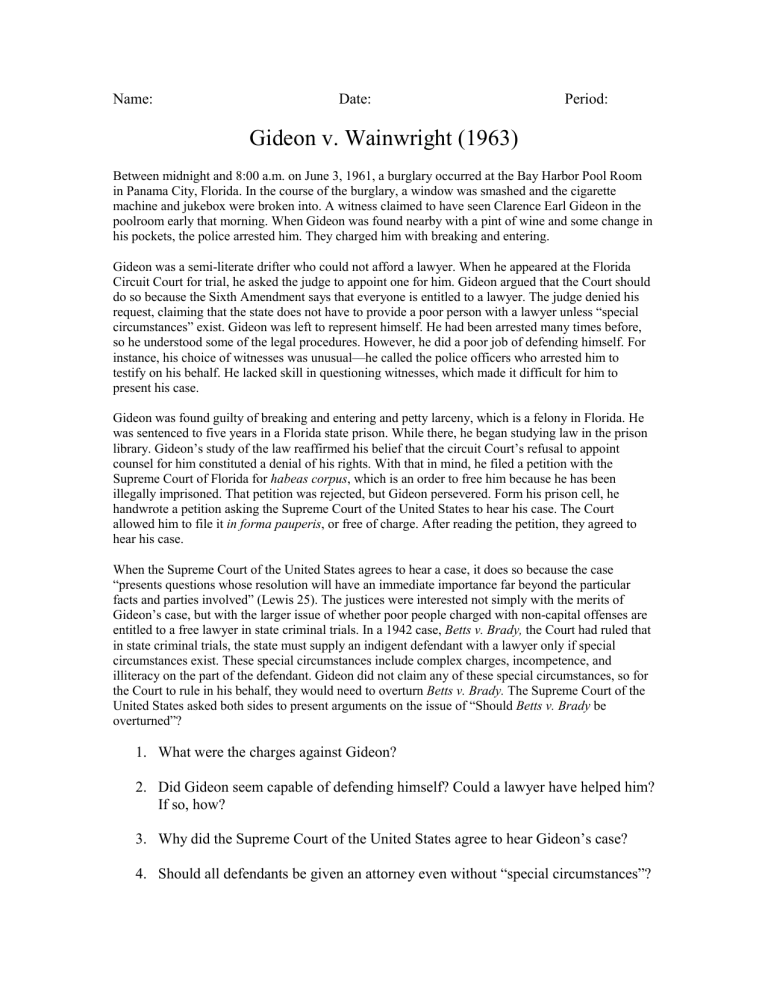
Name: Date: Period:
Gideon v. Wainwright (1963)
Between midnight and 8:00 a.m. on June 3, 1961, a burglary occurred at the Bay Harbor Pool Room in Panama City, Florida. In the course of the burglary, a window was smashed and the cigarette machine and jukebox were broken into. A witness claimed to have seen Clarence Earl Gideon in the poolroom early that morning. When Gideon was found nearby with a pint of wine and some change in his pockets, the police arrested him. They charged him with breaking and entering.
Gideon was a semi-literate drifter who could not afford a lawyer. When he appeared at the Florida
Circuit Court for trial, he asked the judge to appoint one for him. Gideon argued that the Court should do so because the Sixth Amendment says that everyone is entitled to a lawyer. The judge denied his request, claiming that the state does not have to provide a poor person with a lawyer unless “special circumstances” exist. Gideon was left to represent himself. He had been arrested many times before, so he understood some of the legal procedures. However, he did a poor job of defending himself. For instance, his choice of witnesses was unusual—he called the police officers who arrested him to testify on his behalf. He lacked skill in questioning witnesses, which made it difficult for him to present his case.
Gideon was found guilty of breaking and entering and petty larceny, which is a felony in Florida. He was sentenced to five years in a Florida state prison. While there, he began studying law in the prison library. Gideon’s study of the law reaffirmed his belief that the circuit Court’s refusal to appoint counsel for him constituted a denial of his rights. With that in mind, he filed a petition with the
Supreme Court of Florida for habeas corpus , which is an order to free him because he has been illegally imprisoned. That petition was rejected, but Gideon persevered. Form his prison cell, he handwrote a petition asking the Supreme Court of the United States to hear his case. The Court allowed him to file it in forma pauperis , or free of charge. After reading the petition, they agreed to hear his case.
When the Supreme Court of the United States agrees to hear a case, it does so because the case
“presents questions whose resolution will have an immediate importance far beyond the particular facts and parties involved” (Lewis 25). The justices were interested not simply with the merits of
Gideon’s case, but with the larger issue of whether poor people charged with non-capital offenses are entitled to a free lawyer in state criminal trials. In a 1942 case, Betts v. Brady, the Court had ruled that in state criminal trials, the state must supply an indigent defendant with a lawyer only if special circumstances exist. These special circumstances include complex charges, incompetence, and illiteracy on the part of the defendant. Gideon did not claim any of these special circumstances, so for the Court to rule in his behalf, they would need to overturn Betts v. Brady.
The Supreme Court of the
United States asked both sides to present arguments on the issue of “Should Betts v. Brady be overturned”?
1.
What were the charges against Gideon?
2.
Did Gideon seem capable of defending himself? Could a lawyer have helped him?
If so, how?
3.
Why did the Supreme Court of the United States agree to hear Gideon’s case?
4.
Should all defendants be given an attorney even without “special circumstances”?
